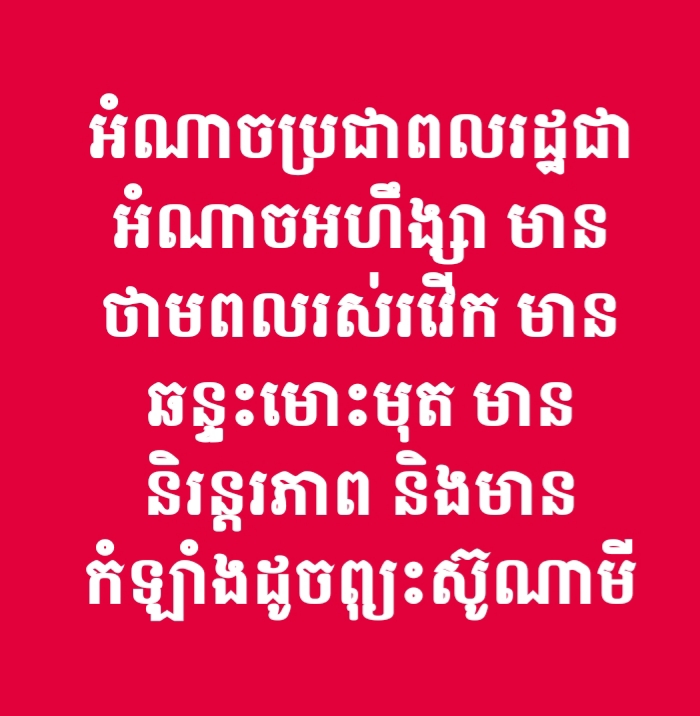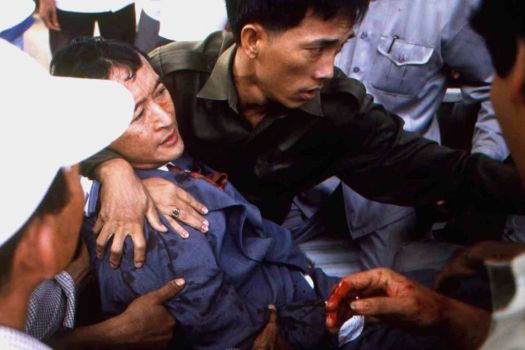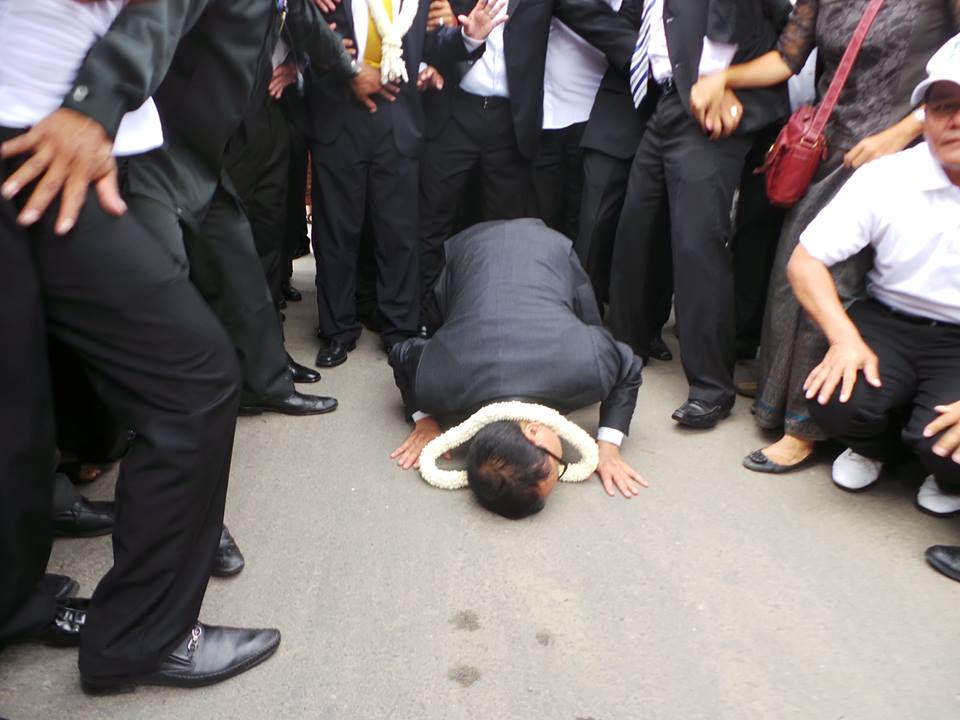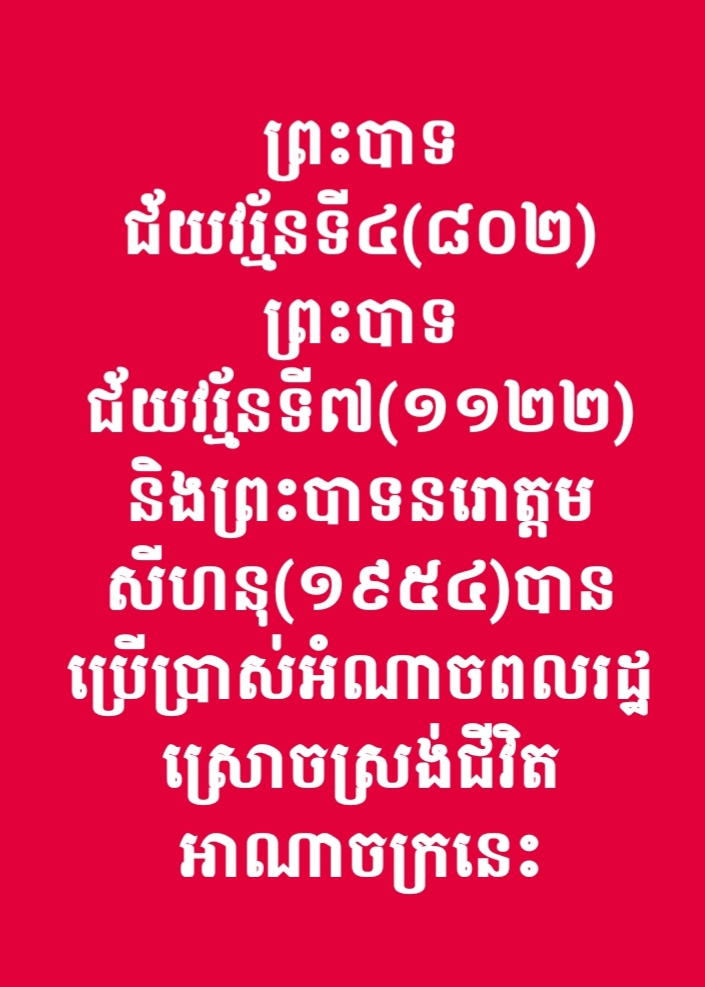“My daughters would rather I take a break from politics. They are worried about me,” Sochua admitted when we had lunch together before she left on her way home. “But they’ve decided to support me as a woman defending democracy and human rights. And yes, I’ll miss the grandchildren.”
៉កូនរបស់ខ្ញុំថាខ្ញុំគួរតែឈប់សម្រាកពីនយោបាយ។ ពួកគេបារម្មណ៍អំពីខ្ញុំ ៉ អ្នកស្រីមួរ សុខហួរទទួលស្គាល់ការពិតនៅពេលពួកយើងទទួលទានអាហារត្រង់ជាមួយគ្នា។ ប៉ុន្តែពួកគេបានសម្រេចចិត្តគាំទ្រខ្ញុំក្នុងនាមជាស្ត្រីការពារលទ្ធិប្រជាធិបតេយ្យនិងសិទ្ធិមនុស្ស។ ហើយពិតណាស់ ខ្ញុំនឹកដល់ចៅៗខ្ញុំណាស់។
Why a 65-year-old grandmother is freely flying to probable imprisonment in Cambodia

By Elizabeth Becker November 6, 2019 at 12:02 p.m. PST, Washington Post
Elizabeth Becker is a former Post war correspondent in Cambodia and author of “When the War was Over: Cambodia and the Khmer Rouge Revolution.”
In a few days, a 65-year-old grandmother will freely board a plane on a journey to probable imprisonment in a foul Cambodian jail. Mu Sochua, one of Cambodia’s most influential politicians, is the vice president of the outlawed opposition party trying to return democracy to Cambodia. She carries a U.S. passport but is under no illusion that this will protect her from the ire of Hun Sen, the strongman of Cambodia.
He has marked her as one of the country’s most dangerous traitors and has ordered the Cambodian army and police to use force to stop her and her colleagues from entering the country by land, sea or air. But Sochua and her peers thoughtfully announced their date of return in advance: Nov. 9, Cambodian Independence Day.AD
“This is the moment to go back,” Sochua told me. “Inside Cambodia, fear is everywhere. I can’t accept that Hun Sen continues as a cruel dictator.”
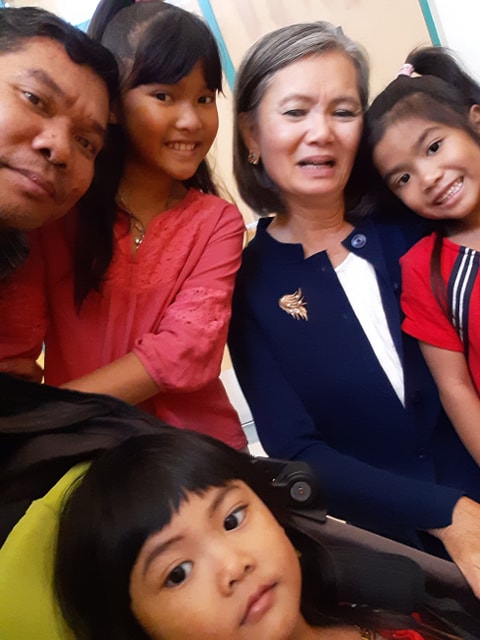
Sochua is a reminder of the unbearable personal sacrifices required to protect and promote democracy in this age of brutal tyrants, especially for women. We met decades ago when she opened the first nongovernmental organization for women’s rights in peacetime Cambodia, tackling domestic violence, human trafficking and gender equality under the law. Over the years, we shared our enjoyment of gossip, mutual admiration of Cambodian architecture and her hopes to pull the country closer to the ideals she absorbed in the United States.
Sochua was a practical idealist in a country traumatized by the Khmer Rouge genocide. After her parents sent all four children overseas to study when the Vietnam War spread into Cambodia in 1970, Sochua ended up in the Bay Area, graduating from San Francisco State and earning a master’s degree in social work from the University of California at Berkeley. She was on the cusp of the successful immigrant path — bright career, professional security and family.AD
Instead, she spent the next five years on the Thai border helping Cambodian refugees, honoring her parents who had disappeared under the Khmer Rouge. At the border camps, she met her husband, Scott Leiper, a Khmer-speaking American who was working to reunite children with their parents. They moved to the broken mess that was Cambodia and, with a family of three daughters, threw themselves into the country’s recovery: Leiper with the United Nations, Sochua from NGOs to politics.
As a Cambodian woman, Sochua faced huge pushback in the male-dominated political arena. Her daughters noticed what she was going through — the rough behavior, betrayals and threats of violence. Despite the obstacles, she won a seat in parliament and then became the first woman to head the Ministry for Women, chalking up success with new laws and the addition of women throughout government.
But Hun Sen, a former Khmer Rouge officer, pushed out his co-prime minister to rule Cambodia on his own and add to the spectacular corruption that had made him, his family and cronies multimillionaires in a poor nation. Sochua left the government to join the opposition. The country was looking for change and, in 2017, her party — the Cambodia National Rescue Party — scored an unexpected victory in local elections. The CNRP appeared headed for an even better showing in the upcoming national elections.
Continue reading
